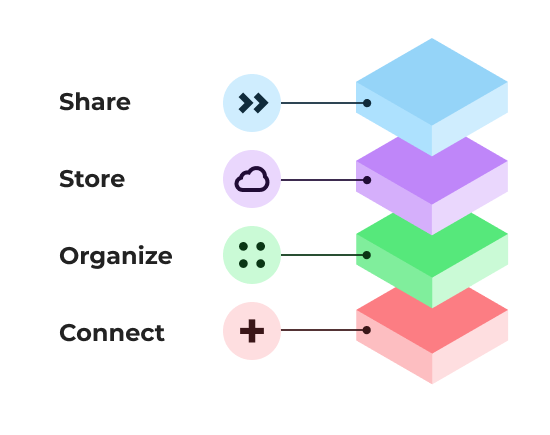 Definition of the Hub-and-Spoke Model
Definition of the Hub-and-Spoke Model
There is no doubt that the business landscape in the twenty-first century is changing radically. Businesses that want to keep up with the times need to make some changes in their operations, and technology is a huge part of this.
One model that is becoming increasingly popular is called the hub-and-spoke model. This practice “enables a centralized ‘hub’ for people to come together, while also providing the choice to work from ‘spokes'” (Robinson, 2021, para. 2). In today’s business world, the hub is a central office, and the spokes are smaller satellite offices that may or may not be traditional. The purpose of the hub is to break down silos through the organization of tools, processes, and people around information that is currently driving business and potentially improving internal collaboration (Jackson, 2015, p. 13). The spokes are on the outside and are comprised of different business competencies needed within the company. When the hub and spokes work together, the hub supplies the data to the spokes with the requisite information using processes that have been established to utilize their existing tools to the utmost.
The Role of Digital Marketing Professionals
Today’s digital marketing professionals play a vital role within the hub. Interestingly, a common thread among businesses is that optimally utilizing these digital marketers can open new opportunities and revolutionize their business (Dougherty, 2024).
As can be seen in the following image, these marketers have four primary functions in the hub: share, store, organize, and connect.

(Dougherty, 2024)
If these marketers are doing their jobs correctly within the hub, their roles will be deemed imperative to the overall function and success of the business. Data analysis is becoming one of the chief tools of companies that are online in some fashion, and marketers within the hub are the ones who can compile and explain the data while making solid recommendations that will lead to a more successful, more effective business.
 Multiple Departments in Digital Campaigns
Multiple Departments in Digital Campaigns
Today’s digital marketers are tasked with the intricacies of considering multiple departments in the development of digital campaigns. Their multifaceted role has expanded exponentially in recent years as they are now responsible for planning, executing, and managing the performance of marketing campaigns across all digital channels of the company (Leighton, 2025). These professionals manage a talented, eclectic team that ensures that brand cohesion is strong across all departments.
These digital marketers are responsible for:
- Development of the digital marketing strategy, including target audience, KPIs, and roadmap creation for implementation across multiple channels
- Execution of marketing campaigns across all channels through collaboration across multiple departments, integration of messaging and creative assets, and real-time optimization and monitoring of marketing campaigns.
- Collection and review of data obtained from the analysis of the marketing campaigns to all departments and recommendations for future campaigns and marketing strategies
(Leighton, 2025)
Marketing professionals must efficiently and intelligibly disseminate necessary information to the correct departments. Moreover, departments must understand how to collaborate and improve campaigns for future success and amplification.
 Value of Sharing Results
Value of Sharing Results
Data is vital to any business’s continued success in today’s global marketplace. For this reason, marketers have a duty to share this data so that the other departments are aware of it and understand how it will help them going forward. Managing and sharing data in an organization increases the value and understanding of the compiled analytics. The more data is shared and understood across departments, the more informed decisions can be made, leading to improved business performance.
Specifically, here are some reasons why sharing these results is crucial to your business:
- Everyone should have access to the data in a way they can understand so they can see what is working and what is not.
- Data must be shared simply so that all departments can quickly find the most useful data to improve their respective departments.
- Each department should use the data to transform the organization and adapt its techniques to create more effective and efficient business and marketing campaigns.
(Hogg, 2025)
 Summary
Summary
In conclusion, digital analytics is not merely the wave of the future; it is imperative for the here and now. As all companies move more towards the hub-and-spoke model to ensure maximum efficiency and effectiveness, digital marketers become like the foundation that ensures that all the other parts of the business are built on solid ground. As a result, the provided thoroughness and accuracy of shared data will keep the company running smoothly for decades to come. It is worth investing some time initially to guarantee the company has the best digital marketers who will enrich the company with the necessary time and resources that establish a solid foundation.
References
Dougherty, S. (2024, August 6). What a marketing data hub really does for your business. Funnel. https://funnel.io/blog/what-a-marketing-data-hub-does
Hogg, C. (2025, May 7). Why You Should Share Data with Others in Your Organization. Lotame Solutions Site. https://www.lotame.com/resources/sharing-data-within-organization/
Jackson, S. (2015). Cult of Analytics: Data analytics for marketing (2nd ed.). Taylor & Francis. https://mbsdirect.vitalsource.com/books/9781317561880
Leighton, M. (2025, April 7). Digital Marketing Management: A guide to building your team. The CMO. https://thecmo.com/marketing-operations/digital-marketing-management/
Robinson, B., PhD. (2021, June 9). ‘Hub-And-Spoke’: the new office model of the future, expert says. Forbes. https://www.forbes.com/sites/bryanrobinson/2021/06/09/hub-and-spoke-the-new-office-model-of-the-future-expert-says/
Taggart, S. (2020, August 27). 10 Marketing Analogies Marketers Can Relate to | Pinckney. Pinckney Harmon. https://pinckneyharmon.com/marketing-analogies/


